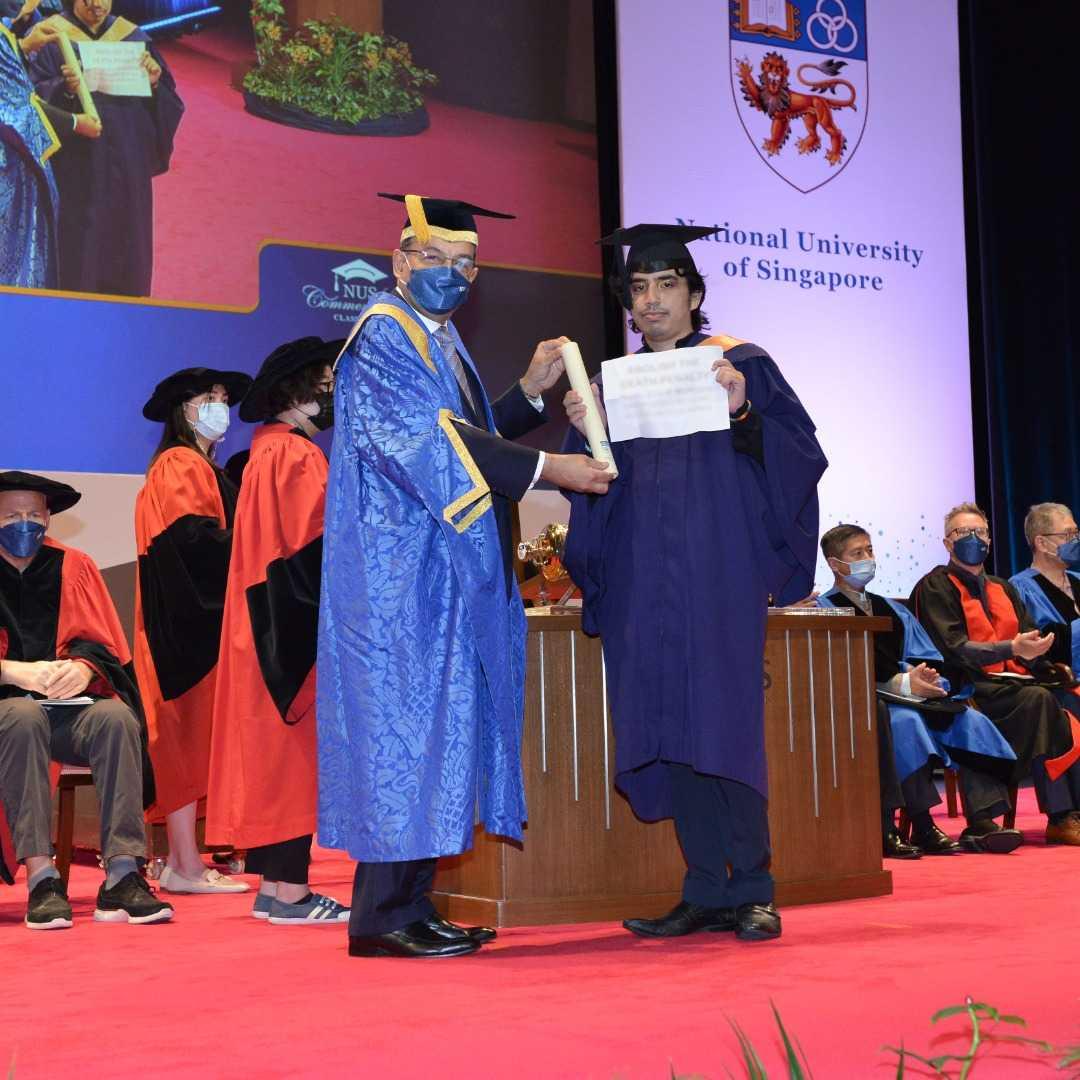Singapore's top varsity sees red after student accepts scroll with protest sign
NUS re-uploads the live recording of the graduation ceremony after omitting the few seconds that Luke Levy was on stage.
Just In
Singapore's top university was forced to censor a short piece of footage from a graduation ceremony that was broadcast live, after a graduating student staged a lone protest accusing the government of having blood on its hands over a spree of executions in the city-state.
On July 6, Luke Levy, who graduated with a bachelor's degree in social science from the National University of Singapore (NUS), pulled out a note from his graduation gown which read, "Abolish the death penalty. No to state murder. End poverty, not life. Blood on your hands", holding it as he walked to accept his scroll.
"That was around the time of Kalwant Singh’s last appeal for his life in court before execution. I felt uncomfortable with this juxtaposition of being celebrated by an institution of the state that was going to murder two the next day," he wrote recalling the protest that was caught on live broadcast but later censored in the recorded footage.
Such a protest is rare in Singapore, where the PAP regime shows little tolerance for dissident views.
Kalwant, a 31-year-old Malaysian from Cameron Highlands, Pahang, was executed on July 7 alongside Singaporean Norasharee Gous, a day after the Singapore court dismissed Kalwant's final appeal for a stay of execution.
Footage of Luke's protest was censored by NUS, which took down the live recording only to reupload the two-hour clip minus his time on the stage – an act that he described as "the most obvious jump cut in the world".
(The amended video, with the sudden skip noticeable at 1:14:54, can be viewed here.)

The attempt to censor him continued with the photo studio touching up his official graduation picture, showing him holding his protest sign but with the words blurred.
"You can still make some words out though, thank goodness they didn’t do a good job with it," he quipped.
"NUS (and others) went through the effort to crop the sign out. To erase the message from existence. To pretend nobody who studied there thinks this way and is taking action on this. To say ‘all is well’ by excluding something uncomfortable to their institution," he said.
Luke said that by trying to censor him, NUS was guilty of maintaining power hierarchies "that neglect, that exploit, that turn people against each other, that kill".
"They’re an institution with state ties, after all. They dare not go against what grants them academic power."
He described his protest as a "small act" which he hoped would inspire others to stand against violence and for "those disproportionately affected by the death penalty".
"I gave my space on stage to Kalwant. To Norasharee. To those on death row now. To those already executed. A small, A4-sized disruption, to acknowledge that even taking the stage is a privilege built on a system of violence that oppresses many in society," Luke wrote of his lone protest.
The Singapore government has often described its tough laws as a deterrent against drug crimes, unlike Malaysia which recently announced that it would abolish the mandatory death sentence for drug offences and others following a moratorium on executions.
An increasing number of critics within and outside the city-state have pointed out that many of those convicted are drug mules from poor families, while the drug kingpins who employ them often go unpunished.
This was a view stressed by British aviation magnate Richard Branson in his open letter to Singapore President Halimah Yacob last year, where he appealed for the life of Malaysian Nagaenthran K Dharmalingam, who was executed on April 27 despite being diagnosed with a low IQ, which would make his execution illegal under international treaties as well as Singapore's own constitution.
Subscribe to our newsletter
To be updated with all the latest news and analyses daily.
